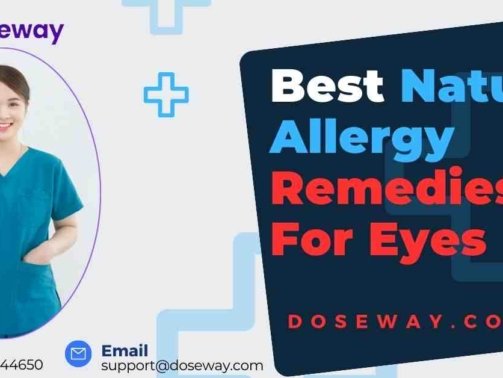Betnovate Cream is a potent topical corticosteroid containing betamethasone valerate, prescribed for inflammatory skin conditions like eczema and psoriasis. This comprehensive guide details its medical uses, debunks dangerous myths, explains serious ...
Top 5 Best Allergy Tablets in Pakistan
Navigating the world of allergy relief in Pakistan can be overwhelming. This definitive guide cuts through the confusion, providing a detailed, evidence-based analysis of the five most effective anti-allergy tablets available in Pakistani pharmacies ...
Home Remedies For Genital Herpes: Causes, Symptoms, Treatment & Prevention
Genital herpes is a sexually transmitted infection (STI) caused by the herpes simplex virus (HSV). It primarily affects the genital area but can also affect other parts of the body. Many people with genital herpes either have no symptoms or only mil ...
What Happens If You Keep Eating Food You’re Allergic To?
Food Allergies occur when the immune system mistakenly reacts to certain foods as harmful, triggering an abnormal immune response. This reaction can range from mild symptoms like itching or hives to severe life-threatening reactions like a ...
Top 5 Ways To Get Rid Of Allergies Permanently
Allergies are an immune system response to normally harmless substances called allergens. These can include pollen, dust, food, insect stings, or certain medications. Although there is no known permanent cure, several methods can significantly reduc ...
How To Get Rid Of Cat Allergies Naturally Causes, Symptoms, And Treatment
Cat allergies are a common allergic reaction caused by an immune system response to proteins found in cat saliva, skin cells (dander), and urine. When these allergens are inhaled or come into contact with the skin, they can trigger various allergic ...
Best Allergy Medicine For Pet Allergies Causes, Symptoms, And Treatment
Pet allergies are a widespread issue affecting many individuals worldwide. People who are allergic to pets suffer from various symptoms triggered by exposure to allergens found in animal skin cells, saliva, or urine. These allergies can affect the q ...
Natural Allergy Remedies For Eyes (Without Eye Drops)
Eye allergies, medically known as allergic conjunctivitis, affect millions of people worldwide. These allergies can cause discomfort, ranging from mild irritation to severe redness and swelling. Fortunately, several natural allergy remedies can alle ...
Over The Counter Antihistamine For Hives (Causes And Symptoms)
Hives, also known as urticaria, are red, itchy welts that appear on the skin due to an allergic reaction. These welts can be triggered by various factors such as certain foods, medications, insect bites, or even stress. For those experiencin ...
Food Allergy Treatment At Home (Causes, Symptoms, And Treatment)
Food allergies are when the immune system reacts to certain foods, causing a range of symptoms from mild itching or swelling to severe reactions like difficulty breathing or anaphylaxis. Common food allergens include milk, nuts, shellfish, and eggs. ...

 Cart is empty
Cart is empty 








